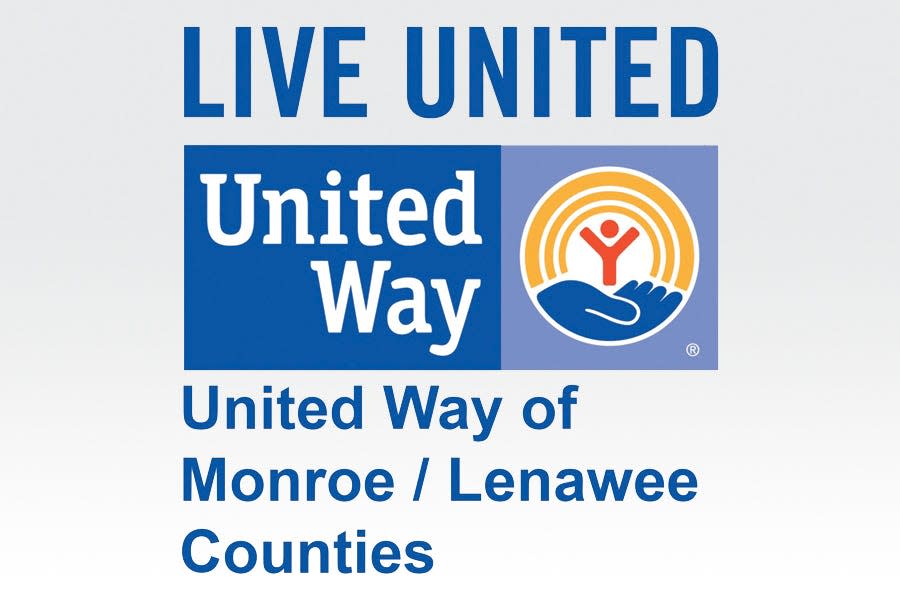Latest ALICE data from the Michigan Association of United Ways focuses on people with disabilities

Over the years, the United Way has shared a number of reports about ALICE (Asset Limited, Income Constrained, Employed), based on research data about families (and individuals) who are employed but unable to make ends meet.
The latest ALICE report from the Michigan Association of United Ways and its research partner, United for ALICE, focuses on people with disabilities. Although we do not yet have local data, this report does have interesting Michigan data.
The number of people with disabilities in Michigan who struggle to afford the basics is far higher than federal poverty data indicates — 48% compared to 19%.
In 2019, while 19% of Michigan residents with disabilities were deemed in poverty, another 28% were designated under ALICE. ALICE households earn more than the federal poverty level but less than what it costs to live and work in the modern economy. Combined, almost 48% of Michigan residents living with disabilities were below the ALICE threshold, with income that doesn’t meet the basic costs of housing, child care, health care, transportation and a smartphone plan.
“On the 32nd anniversary of the Americans with Disabilities Act, we see residents with physical, mental or emotional conditions who are struggling financially and are not only being undercounted but underserved,” said United For ALICE National Director Stephanie Hoopes. “There is still work to do, as having a disability puts individuals at substantial risk for financial instability, more than many other factors. Daily, and even more so, during the COVID-19 pandemic, these individuals face barriers to accessing a quality education, secure jobs and critical supports.”
The new research also shows that outdated federal guidelines prevent the majority of residents with disabilities who are living in financial hardship from accessing critical public assistance.
According to the new report, a staggering 82% of residents with disabilities below the ALICE threshold did not receive Supplemental Security Income (SSI). The program requires that recipients have income below the poverty level, be unable to work, have a “severe” impairment and have less than $2,000 in their bank accounts, $3,000 if they are a married couple.
“Income eligibility requirements for SSI haven’t been updated in nearly four decades, which is one of the big reasons why more than 530,000 residents were shut out of receiving a much-needed financial lifeline,” said Holly Miller, a board member of the Michigan Association of United Ways. “By using data that takes into account the true cost of living — we can establish critical supports that help those who need it the most.”
Other findings from ALICE in Focus: People With Disabilities include:
• Black and Hispanic residents with disabilities — 65% and 54% respectively — disproportionately experienced financial hardship compared to 43% of white people with disabilities.
• Females with disabilities struggled more to afford the basics — 51% — compared to 44% of males with disabilities.
• Michigan saw 59% of residents with disabilities below the ALICE threshold spend 35% or more of their income on their mortgage, plus utilities, taxes and insurance.
• Whether working full- or part-time, people with disabilities were more likely to be living paycheck to paycheck than those without disabilities: 21% of full-time workers with disabilities were below the ALICE threshold compared to 16% of full-time workers without disabilities.
In conjunction with the launch of ALICE in Focus: People With Disabilities, local United Ways across the state of Michigan will be joining local Centers for Independent Living to hold a 21-Day Disability Equity Challenge. The challenge, developed in partnership with the Disability Network of Southwest Michigan, aims to explore disability from a position of equity and pride and is designed to raise awareness, increase understanding and shift perspectives about disability in our culture. The free, interactive challenge begins on Aug. 1, visit www.miunitedwayequity.org/disabilityequitychallenge to register or learn more.
For Lenawee County, our community partner in this challenge is DisAbility Connections serving Lenawee, Hillsdale and Jackson counties. Their mission is to advance the independence, productivity and full inclusion of children and adults with disabilities into our communities. They can be reached at www.disabilityconnect.org or 517-782-6054. More data is available through the ALICE in Focus: People With Disabilities interactive data dashboard, which provides filters for regional and local geographies, age, race, disability status, living arrangements and household work status. Visit www.unitedforalice.org/Focus-Disabilities for more information.
ALICE in Focus: People With Disabilities marks the second installment in the ALICE in Focus Research Series, which draws from the U.S. Census Bureau’s American Community Survey (ACS) Public Use Microdata Samples (PUMS). Each installment in the series highlights a specific segment within the ALICE demographic. The first installment focused on children; the next report, scheduled to be released in November, will feature veterans.
United Way funds 12 local Lenawee County agency programs and serves as a donor designation vehicle for 30-plus additional agencies. We also sponsor countywide 211 services, and coordinate Project Ramp, two annual Health Check events, the Emergency Food and Shelter Program (EFSP), and Day of Action programs and services.
All funds raised in Lenawee County stay in Lenawee County.
For more information about giving and living united, please contact us. Call us at 517-264-6821, call for an appointment at our Adrian office at 136 E. Maumee St., Suite 15, Adrian, MI 49221, or visit our website at www.unitedwaymlc.org. You can email us at lpipis@unitedwaymlc.org.
Laura Schultz Pipis is the executive director of the United Way of Monroe/Lenawee Counties.
This article originally appeared on The Daily Telegram: United Way: Latest ALICE data focuses on people with disabilities
